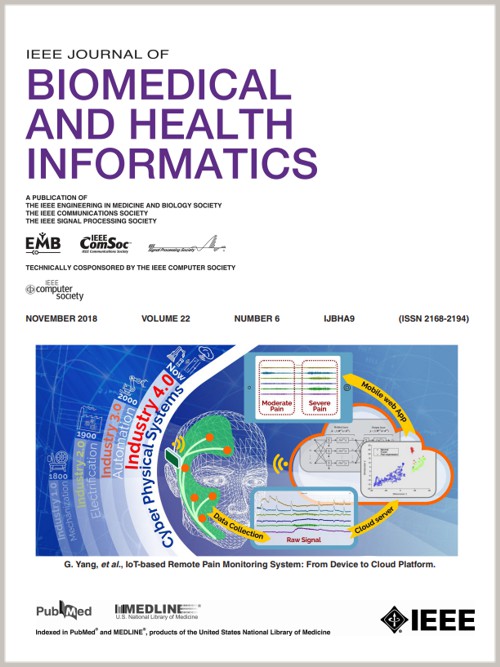基于 Wasserstein 生成式对抗网络的差异隐私元数据共享。
IF 6.7
2区 医学
Q1 COMPUTER SCIENCE, INFORMATION SYSTEMS
IEEE Journal of Biomedical and Health Informatics
Pub Date : 2023-06-16
DOI:10.1109/JBHI.2023.3287092
引用次数: 0
摘要
虽然差分隐私元数据共享可以避免敏感数据的隐私泄露,但随机扰动本地元数据会导致效用和隐私之间的不平衡。因此,本研究利用瓦瑟斯坦生成对抗网络(Wasserstein generative adversarial networks,WGAN)提出了差分隐私元宇宙数据共享的模型和算法。首先,本研究通过在 WGAN 中引入与生成数据判别概率相关的适当正则化项,构建了差分隐私元数据共享的数学模型。其次,基于构建的数学模型,利用 WGAN 建立了差异化隐私元数据共享的基本模型和算法,并对基本算法进行了理论分析。第三,在基本模型的基础上,通过序列化训练,建立了利用 WGAN 实现差异化隐私元数据共享的联盟模型和算法,并对联盟算法进行了理论分析。最后,基于效用和隐私指标,对使用 WGAN 的差异化隐私元数据共享的基本算法进行了对比分析,实验结果验证了理论结果,表明使用 WGAN 的差异化隐私元数据共享算法在隐私和效用之间保持了平衡。本文章由计算机程序翻译,如有差异,请以英文原文为准。
Wasserstein Generative Adversarial Networks Based Differential Privacy Metaverse Data Sharing
Although differential privacy metaverse data sharing can avoid privacy leakage of sensitive data, randomly perturbing local metaverse data will lead to an imbalance between utility and privacy. Therefore, this work proposed models and algorithms of differential privacy metaverse data sharing using Wasserstein generative adversarial networks (WGAN). Firstly, this study constructed the mathematical model of differential privacy metaverse data sharing by introducing appropriate regularization term related to generated data's discriminant probability into WGAN. Secondly, we established basic model and algorithm for differential privacy metaverse data sharing using WGAN based on the constructed mathematical model, and theoretically analyzed basic algorithm. Thirdly, we established federated model and algorithm for differential privacy metaverse data sharing using WGAN by serialized training based on basic model, and theoretically analyzed federated algorithm. Finally, based on utility and privacy metrics, we conducted a comparative analysis for the basic algorithm of differential privacy metaverse data sharing using WGAN, and experimental results validate theoretical results, which show that algorithms of differential privacy metaverse data sharing using WGAN maintaining equilibrium between privacy and utility.
求助全文
通过发布文献求助,成功后即可免费获取论文全文。
去求助
来源期刊

IEEE Journal of Biomedical and Health Informatics
COMPUTER SCIENCE, INFORMATION SYSTEMS-COMPUTER SCIENCE, INTERDISCIPLINARY APPLICATIONS
CiteScore
13.60
自引率
6.50%
发文量
1151
期刊介绍:
IEEE Journal of Biomedical and Health Informatics publishes original papers presenting recent advances where information and communication technologies intersect with health, healthcare, life sciences, and biomedicine. Topics include acquisition, transmission, storage, retrieval, management, and analysis of biomedical and health information. The journal covers applications of information technologies in healthcare, patient monitoring, preventive care, early disease diagnosis, therapy discovery, and personalized treatment protocols. It explores electronic medical and health records, clinical information systems, decision support systems, medical and biological imaging informatics, wearable systems, body area/sensor networks, and more. Integration-related topics like interoperability, evidence-based medicine, and secure patient data are also addressed.
 求助内容:
求助内容: 应助结果提醒方式:
应助结果提醒方式:


